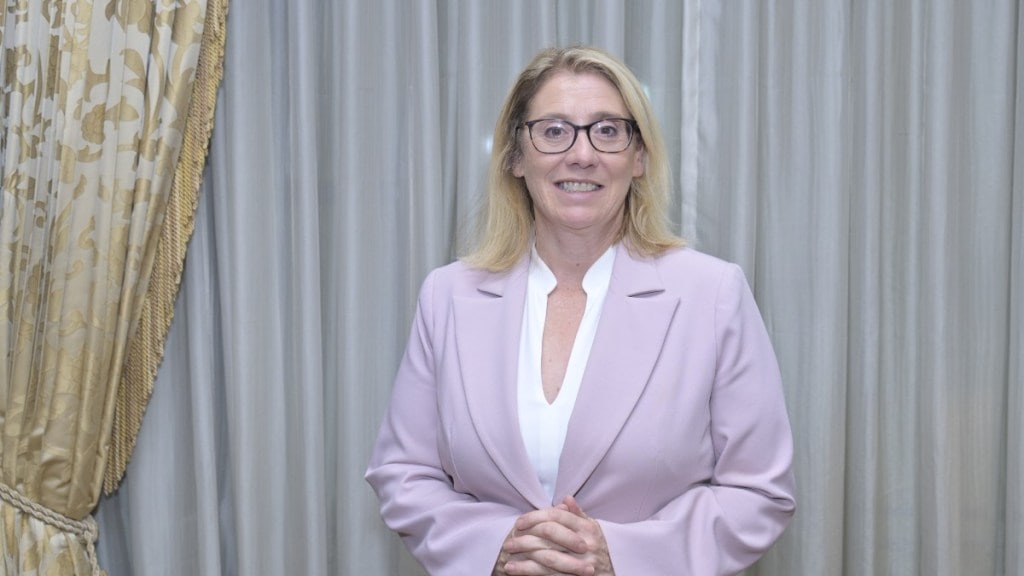Western Australia is actively seeking to diversify its economy by tapping into opportunities in India, focusing on tourism and critical minerals. The state government believes there is a substantial opening for Indian businesses across various sectors within Australia’s largest state.
To fortify the bilateral relationship, the Western Australian government is exploring the possibility of establishing a direct aviation link, potentially in southern India. Notably, there has not been a direct flight connection between India and Western Australia to date.
During a Roundtable in New Delhi, Deputy Premier Rita Saffioti, who also serves as the Treasurer and Minister for Transport and Tourism, expressed the state’s receptiveness to various investments, particularly in hotels and other tourism-related experiences. She held discussions with the Chairman of Tata, India’s largest conglomerate, exploring potential collaborations.
Saffioti shared insights into talks with airlines like Air India and Indigo, emphasizing the desire for additional air links and destinations. “We are looking for more traffic from Southern India as we believe there is a huge opportunity,” she stated. While it’s challenging to pinpoint specific locations, there’s a possibility of increased traffic from cities like Chennai and Hyderabad.
The minister, concluding a successful delegation-led mission in Delhi, highlighted efforts to explore collaborations and enhance connectivity. Meetings with Indian officials, hotel industry businessmen, and aviation sector representatives were part of this initiative.
Western Australia is keen on expanding economic ties, with Saffioti affirming that “there is a huge opportunity for Indian businesses.” In response to inquiries, she mentioned ongoing communication with various players in India, both public and private, for potential investments in critical minerals.
Tourism
Promoting tourism emerged as a central theme during the trade mission in Delhi. India currently stands as Western Australia’s 10th largest trading partner. Saffioti emphasized the pivotal role of tourism in fostering the relationship between the two countries. “We have a lot of tourists, but we want to grow tourism. That’s one of the key aims – to promote investment in tourism infrastructure in Western Australia,” she explained.
In 2023, “Western Australia welcomed 90,000 visitors from India, including those for international education. The state recorded a 15 percent growth in Indian visitors in 2022, with around 30,000 arriving for tourism purposes.”
Saffioti sees enormous untapped potential for further tourism growth, underscoring the mutual benefits for both India and Australia.
Critical Minerals & Importance for India
Western Australia plays a pivotal role in the global landscape of critical minerals, making it a strategic partner for India as it navigates its clean energy transition, especially in the context of electric vehicles (EVs). The minister highlighted the state’s potential to become a major player in renewable energy production, emphasizing the abundance of critical minerals like lithium and vanadium.
“As energy demand rises, India is likely to meet a greater share of its energy needs through imports,” the minister noted, underlining the opportunities for Indian investments in Western Australia. The potential for offtake agreements, particularly for key battery minerals, presents a mutually beneficial scenario for both regions.
India’s trajectory in the EV space is significant, with projections indicating it could account for over a third of the global EV battery demand by 2030. This ambitious goal aligns with the nation’s broader economic development and the concurrent rise in energy requirements.
Saffioti emphasized Western Australia’s competitive edge in clean energy, citing its expansive solar and wind resources, coupled with the richness of critical minerals and natural land resources. The state stands out as a leading supplier of lithium, nickel, cobalt, manganese, and rare earths, playing a vital role in global efforts towards decarbonization.
The minister highlighted Western Australia’s diverse production portfolio, encompassing over 50 different commodities, many of which are integral to supporting decarbonization initiatives globally. The state’s reputation as a reliable, ethical, and cost-effective jurisdiction has attracted international partners, further solidifying its position in the clean energy landscape.
“There are opportunities for Indian investment in Western Australia through offtake agreements for key battery minerals,” she reiterated, pointing to the potential collaboration between the two regions.
This collaborative spirit extends to the partnership between ITWA and the India Energy Storage Alliance, focusing on supply chain mapping for critical minerals and future batteries. The objective is to tap into the burgeoning India GigaFactory Battery market, establishing a robust supply chain and nurturing a skilled workforce.
According to a diplomat, this joint initiative aligns seamlessly with the Government of Western Australia’s Future State strategy, aimed at expediting the Diversify WA strategy. The commitment to sustainability and the abundance of crucial resources positions Western Australia as a valuable ally in India’s pursuit of clean energy goals, marking the evolution of a partnership that transcends mere mineral development.

